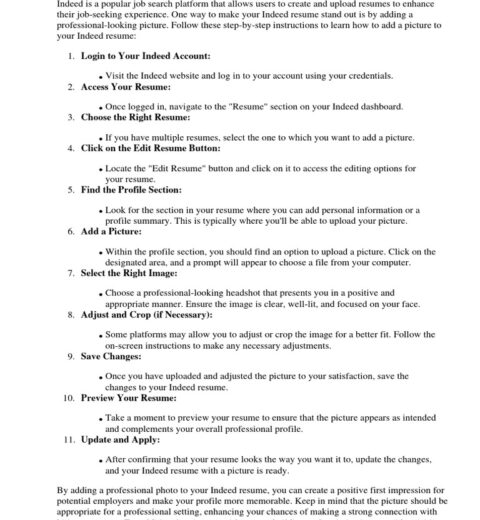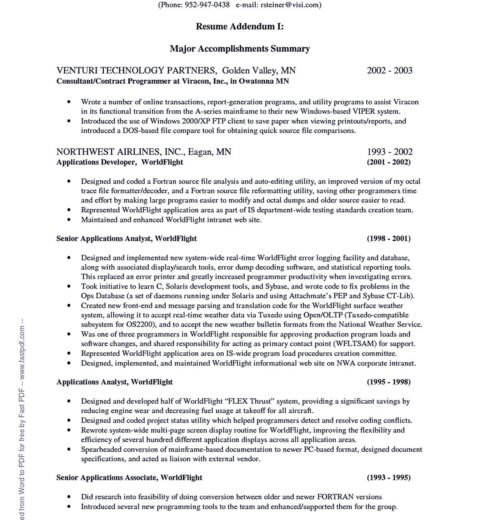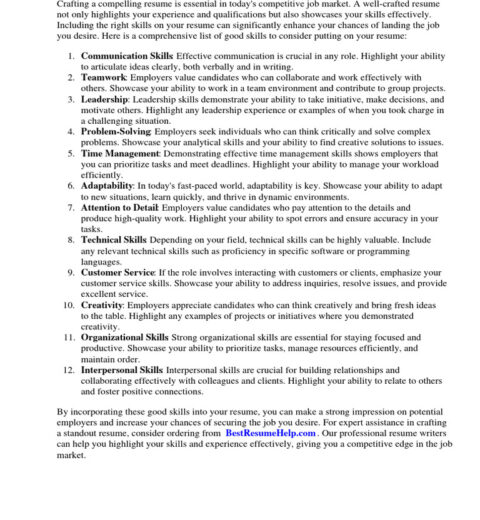In today’s competitive job market, candidates frequently seek ways to differentiate themselves from multifarious applicants. One effective strategy is to incorporate volunteer experience into a resume. This not only highlights a commitment to altruism but also showcases a diverse skill set that may resonate with potential employers. Understanding how to seamlessly weave this experience into a resume can significantly amplify one’s prospects.
Initially, it is imperative to recognize why volunteer work garners attention from hiring managers. Volunteer roles often demand a unique blend of soft and hard skills, such as leadership, teamwork, problem-solving, and adaptability. These competencies are crucial in many professional environments. Furthermore, volunteer work suggests a proactive mindset and a genuine interest in community engagement, characteristics that can make candidates more appealing.
When deciding to include volunteer experiences on a resume, one must consider the relevance of these activities to the desired position. Carefully select which volunteer roles to highlight, particularly those that align with the job’s required skills or corporate culture. The choice of which experiences to include should reflect not only the duration of service but also the impact made. For instance, if applying for a marketing position, a role involving promotional activities for a non-profit organization may be particularly pertinent.
Once relevant experiences are identified, the next phase involves strategically formatting the volunteer section of the resume. It is advisable to create a dedicated section for volunteer work, especially if it holds significant weight in a candidate’s background. This can be labeled “Volunteer Experience,” “Community Service,” or “Relevant Volunteer Work.” Place this section either before or after the education or work experience sections, depending on its relevance to the job and the résumé’s overall structure.
As with professional experience, descriptive language is critical when detailing volunteer roles. Clearly articulate the responsibilities and achievements associated with each position. Utilize strong action verbs such as “coordinated,” “facilitated,” or “implemented” to convey initiative and success. For example, instead of stating “helped at a food bank,” one might say, “coordinated weekly logistics for food distribution, serving over 300 families each month.” Such descriptions not only quantify contributions but also exemplify leadership and organizational abilities.
Incorporating metrics can further enhance the impact of the volunteer experience listed. Quantifying achievements provides concrete evidence of responsibility and results. For example, stating “increased fundraising revenue by 40% within one year” offers a measurable indicator of effectiveness. Employers are inclined to appreciate figures because they reflect capability and influence.
It is also prudent to highlight transferable skills gained through volunteer experiences. For instance, if a candidate led a team of volunteers during a community project, they cultivated leadership and communication skills. These qualities are invaluable across various industries and roles. Mentioning such competencies can resonate with hiring personnel who recognize and value adaptability and proficiency in diverse contexts.
In certain cases, candidates may possess extensive volunteer work that eclipses professional experience, particularly recent graduates or individuals transitioning careers. Under these circumstances, it may be advantageous to prioritize volunteer roles over paid positions, particularly if they showcase relevant skills and leadership. This restructuring can create a more compelling narrative that emphasizes growth and capability.
Additionally, remember that consistency in formatting throughout the resume is crucial. Maintain a uniform style in terms of font, bullet points, and spacing. This level of professionalism reflects attention to detail, a highly regarded quality in any applicant.
Moreover, consider the psychology behind volunteerism. Candidates who have engaged in volunteer work often possess an intrinsic motivation to contribute positively to society. This attribute can uniquely enhance one’s personal brand, portraying an individual who seeks to make a difference—not merely for self-gain, but for the greater good. Employers may find this perspective refreshing and desirable, particularly in organizations that prioritize corporate social responsibility.
As the employment landscape continues to evolve, the significance of soft skills and cultural fit intensifies. Volunteerism contributes to both aspects. By including volunteer experiences on a resume, candidates do more than fill space; they authentically convey their values, motivations, and potential fit within a team or organization.
Upon compiling volunteer experiences, it is wise to solicit feedback from peers or mentors. This external perspective can provide insights on whether the entries effectively convey the intended message and appeal to prospective employers. Constructive feedback can be invaluable, possibly illuminating areas for improvement or highlighting strengths that may have been overlooked.
Finally, in a world increasingly driven by digital impressions, consider the integration of an online portfolio or LinkedIn profile that features volunteer work. Expanding upon what is presented in the resume allows for a more comprehensive portrayal of experiences and expertise. Including testimonials or endorsements from organizations where one has volunteered can further solidify credibility.
In summary, adding volunteer experience to a resume is not merely an afterthought—it is a strategic maneuver that can significantly enhance an applicant’s candidacy. By thoughtfully selecting relevant roles, clearly articulating responsibilities and achievements, and demonstrating transferable skills, candidates can create a compelling narrative that resonates with employers. Emphasizing the personal values associated with volunteerism can further establish a connection with hiring managers eager for individuals committed to making a positive impact. Ultimately, the inclusion of volunteer experiences not only presents a rounded profile but also encapsulates the essence of a well-rounded individual poised for success in the modern workforce.




